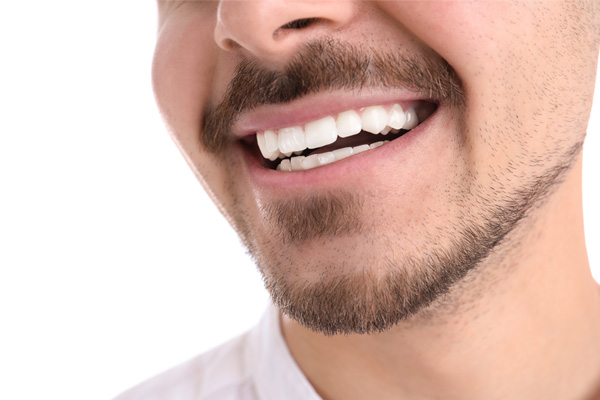How to Protect Your Teeth Under Dental Veneers

There are many cosmetic problems that dental veneers can cover-up. Chips and fractures, wear and tear, gaps, crookedness, and discoloration can all be improved by the treatment. Only minimal amounts of enamel have to be removed to prepare the tooth for veneers, making it a good option if you want your teeth to remain mostly intact. However, you still need to take care of the teeth underneath.
Why do teeth with dental veneers need protection?
Tooth decay occurs party because of the bacteria that cause it to take hold in the tooth enamel's porous surface. Veneers are made of nonporous materials, such as porcelain or composite resin. Therefore, a veneer is resistant to decay because there is no place for the bacteria to take hold of its surface.
However, a veneer does not cover up the entire tooth. It only adheres to the front. Though not easily visible from the outside, the back part of the tooth remains exposed, leaving it vulnerable to the decay-causing bacteria that may take hold of the porous surface of the tooth enamel.
Over time, a gap may form between the veneer and the surface of the tooth. Bacteria may get into this gap and cause decay on the surface of the tooth that is covered by the veneer. Teeth with veneers that develop decay still require treatment. If the decay progresses, the teeth may no longer be strong enough to support the veneers.
What can you do to protect the teeth?
The risk of decay with dental veneers is very manageable. You do not necessarily have to do anything special to protect your teeth. You just need to be more diligent about your current dental care.
Brush and floss daily
Having veneers does not mean that you can depart from your regular oral hygiene routine. For example, you should not skip flossing between the teeth that have veneers. The spaces between the teeth are the places where the bacteria that cause tooth decay are most likely to hide. Therefore, you have to make sure to floss between all your teeth, especially the ones that have veneers.
The recommendation to brush twice a day is the same for people with veneers as for those without. However, if you have veneers, you have to pay particular attention to the areas along the gum line and the backs of your teeth, as these areas are most vulnerable to bacteria.
Avoid dry mouth
A dry mouth is not only uncomfortable, but it can promote tooth decay because of a lack of saliva to help remove bacteria and food particles from the teeth. Dry mouth can occur due to dehydration, which you can avoid by drinking plenty of water, preferably tap water because the fluoridation can help prevent tooth decay. It can also be a symptom of underlying medical conditions or a side effect of certain medications. Your dentist may be able to recommend treatments that can help, or you can ask about decreasing your medication dosages.
Conclusion
Teeth with dental veneers are still susceptible to decay. However, strict adherence to an excellent oral hygiene routine reduces the risk.
Request an appointment here: https://www.thanasasdds.com or call Thanasas Family Dental Care at (248) 260-2878 for an appointment in our Troy office.
Check out what others are saying about our dental services on Yelp: Dental Veneers and Dental Laminates in Troy, MI.
Recent Posts
With appropriate care, dental veneers can continue to cover up minor flaws in your teeth for over 10 years. A dentist may recommend veneers if you have an otherwise healthy tooth that is: Permanently stained or discolored Chipped Cracked Unevenly sized or shaped Spaced too far apart from adjacent teethDuring the procedure, a minimal amount…
You can cover up imperfections in your teeth with dental veneers, thin shells of porcelain that fit over your teeth, and bond to them. Veneers can last for at least a decade, but they typically need to be replaced occasionally if a dentist must treat underlying tooth decay or gum disease. Veneers can also stain;…
Dental veneers are a popular cosmetic treatment solution in smile makeovers. This is because they can address a range of cosmetic and oral health issues, such as teeth stains, misshapen teeth, uneven teeth, chips, and cracks. This review highlights how a dentist might utilize dental veneers during the smile makeover treatment process. Dental veneers are a…
People who are uncomfortable about small gaps between their teeth can use veneers to erase the extra spaces and bring uniformity back to their mouth. Cosmetic dentistry can restore both function and appearance to teeth when trauma, loss, or discoloring has occurred. Rather than avoiding social interaction, family pictures, or the occasional selfie, look into…


